SERVICES

MEDIATION
The benefits of mediation are fourfold:
- Disputes are generally resolved more quickly;
- Tensions in interpersonal relations are reduced;
- The costs of mediation are lower than those of litigation; and
- The process is confidential and cannot be used at a later date.
Our process consists of five (5) steps:
- Introduction and Mediation Agreement: The mediator introduces the parties and the process. The framework and rules for mediation are discussed and the parties agree on the terms of reference for the process. A protocol is usually signed by the parties.
- Sharing Perspectives: At this stage, the parties are invited to present their perception of the situation. Ideally, this step, facilitated by the mediator, is done in the presence of all the parties. This allows everyone to better understand each other’s point of view. While this is the ideal procedure, the mediator may recommend that this step be done individually. This usually depends on the issue raised and/or the disposition of the parties. While the mediator does not provide legal or financial advice, he will play an advocating role for clarity.
- Identifying the issues: From information shared in the previous step, issues emerge and the parties are invited to prioritize those issues. This step is important as it provides clarity to the parties about what they will work first and, sometimes, even identifying small wins they can implement immediately. At this stage, the mediator will help the parties to stay grounded in reality.
- Generating and evaluating options: The parties work together to formulate options addressing the issues that have been prioritized. Once the options have been generated, the parties are invited to evaluate those options to make sure everyone’s interests are met. The mediator’s role at this stage is to primarily help parties to focus on trying to meet interests rather than focusing on their position. Mediators will also help parties to be creative at generating options and building their desired future.
- Creating an agreement: This last step of the mediation process provides an opportunity for the parties to put on paper the options they have chosen and the implementation process they have agreed to. Generally, the mediator drafts an agreement to be signed by the parties.
Cost
Cost associated with mediation services will be dependent on the number of parties involved. You will find below the hourly costs related to the number of parties involved. These fees include the preparatory meeting with the parties, the review of documentation (to a maximum of 1.5 hour), the mediation meetings with the parties and the preparation of a settlement agreement. The parties are responsible for the payment of these fees on an equal basis, unless otherwise specified in writing by the parties.
| Number of Parties | Hourly Rates (+ HST) |
|---|---|
| 2 | $225 |
| 3 | $250 |
| 4 | $275 |
| 5+ | $300 |
Other fees: An additional flat fee of $400 + HST will be required for the preparation of a report in one of the official languages, if required by the parties.
COLLECTIVE BARGAINING
Collective bargaining is the process used by Employers and Unions to negotiate terms and conditions of Employment called “collective agreement”. A collective agreement is a written contract between both parties outlining the terms and conditions as well as the rights, privileges and duties of the union, the employer and the employees. The collective bargaining process is usually subjected to either federal, provincial or territorial legislations. The process and timelines are dependent on those legislations.
That process can also be used to negotiate terms and conditions of employment for excluded employees.

Cost
The costs associated with the collective bargaining will be based on a daily rate of $1,575 + HST and will be pro-rated for those portions of days not worked. An additional flat fee of $400 + HST will be charged for drafting or updating a collective agreement or terms and conditions of employment in either official language as a result of the bargaining process.

WORKPLACE INVESTIGATION
- Ensure statutory compliance;
- Discover workplace issues;
- Prevent recurrence of workplace issues;
- Take corrective action; and/or
- Prepare for litigation mediation or arbitration
- discrimination
- harassment or violence
- inappropriate or unprofessional behaviour including situation where there has been threat
- complaints related to a poisonous work environment
- vandalism
- violation of a workplace policy or guidelines
- safety complaints
- statutory violation
- workplace dispute.
Most of the time, investigations will be triggered after an employee files a formal or informal complaint regarding inappropriate behaviour in the workplace.
Cost
The costs associated with workplace investigations will be based on a $300 + HST schedule. Only meeting hours with the parties including Employer representatives, union representatives (if applicable), the complainant, the respondent, witnesses and report writing time will be charged. Preparation time is included in the above hourly rate.
WORKPLACE RESTORATION
The workplace restoration process is adapted to the organizational environment.
Cost
The costs associated with workplace restoration will be based on a daily rate of $1,575 and will be pro-rated for portions of days that have not been worked. An additional flat fee of $400 + HST will be required for the preparation of a comprehensive report, in one of the official languages, if required by the Employer.


What Makes ADR Solutions Different?
Contact Us Today to Book A Free Consultation
Prendre un rendez-vous
Contactez-nous dès aujourd'hui
Communiquez avec ADR Solutions en utilisant le formulaire ci-dessous

